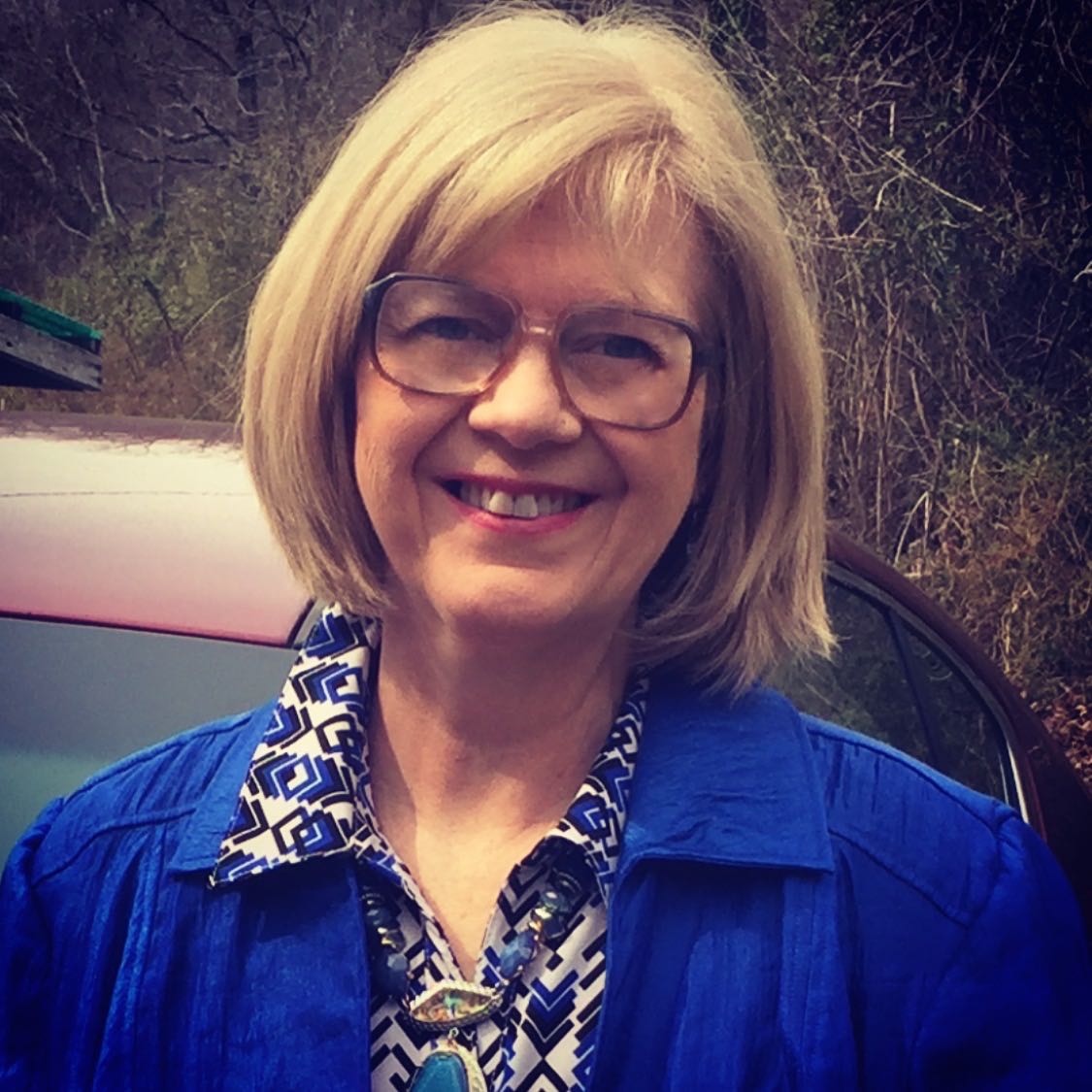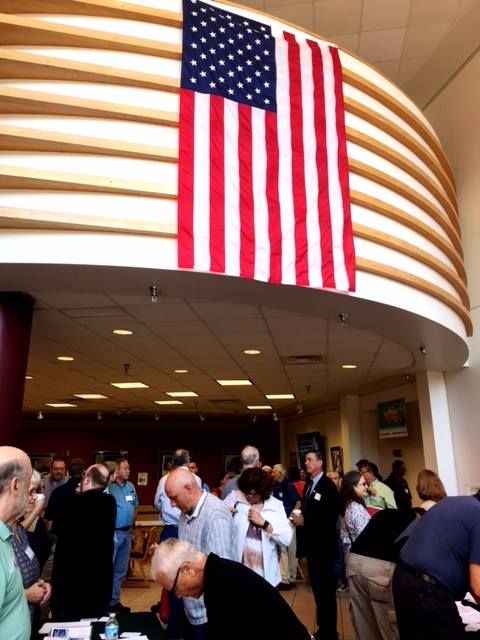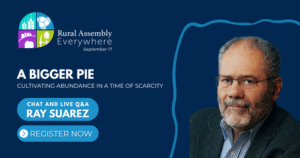We will ignite the 2018 National Rural Assembly with our firestarters – committed citizens who are modeling for the nation how we mend and strengthen the social and civic fabric of our country. They are lighting fires and sparking change, each in their own way and in their own place, and we had the pleasure of speaking with Liz Shaw recently. This is a guest post from Elena Kaye-Schiess reporting on the conversation.
Broadband access in rural communities is not an easy topic to wrap one’s mind around. We’ve all heard about net neutrality and the associated FCC regulations, but the topic is complex. Regulatory complexity aside, Liz Shaw has an authentic understanding of the issue, because she lives it every day.

Through a lifetime of organizing to fight for a better future for her community, her children, and her grandchildren, Liz knows the courage and leadership it takes to stand up for your values, and speak truth to power. She learned these values at a young age, from the time she called out her high school principal for trying to cancel a civil rights assembly she had helped organize, and in response, the principal called her to his office and tried to expel her.
From there, in her early 20s, Liz took her organizing skills to the federal level, bringing together a group of communities around the United States that had been targeted for a nuclear dump site by the Department of Energy. Together, they filibustered the DOE’s hearing in Asheville and convinced the DOE to scrap the project altogether. Winning that battle was a watershed moment in Liz’s career as an organizer, and firestarter. She learned firsthand how good organization can move the needle and bring about real change.
Today, Liz is organizing on behalf of equitable broadband access for communities across rural America.
“There are literally places all across not just southeastern Ohio, but all across rural America, that have dead zones – no landlines that work, no cell phone coverage, and first responders radios don’t work, so it’s like you’ve gone back on the prairie and you might as well use smoke signals,” according to Liz.
Unreliable connectivity affects Liz’s family, her friends, and her community on a daily basis. Liz shares stories of friends having to take their children to fast food restaurants to get their homework done:
“Can you imagine an 11 year old researching on the mom’s cell phone while writing an essay in the middle of a fast food restaurant?”
Stories of families who communicate with walkie-talkies to stay in touch with one another, because their phones are so unreliable, and the story of someone dying on the soccer field because residents couldn’t summon an ambulance – the cell phones were out and the landlines didn’t work in the area.
“Companies are not required to come in and repair them on a timely basis, and rain showers can knock out landlines for a week at a time or more, because the connections in these transmission boxes are rusted through. People are without a way to summon not only ambulances, but also firefighters, and first responders of all kinds. Meanwhile, the first responders themselves are in danger because the spectrum that carries their radio signal also doesn’t work properly,” Liz goes on to say.
With the power of these stories, Liz began reaching out to advocacy groups like Common Cause and Public Knowledge, and she soon she had the attention of the FCC Commissioner Mignon Clyburn who was doing a listening tour on the issue, but hadn’t yet visited Appalachia. Liz decided, “Well, she’s coming to Appalachia.”
Trying to plan a connectivity summit without connectivity is one obstacle, but imagining she might have a few months to plan and organize a convening and finding out she had only seven weeks until the FCC Commissioner would plan to arrive, was staggering. Unabated and through tremendous leadership, perseverance, and organizing skills, Liz brought together the Appalachian Ohio and West Virginia Connectivity Summit in Marietta, Ohio, adjacent to West Virginia and Ohio counties, which have poor connectivity.

Delegations from 29 Appalachian counties attended the summit to share their stories, not only with the FCC Commissioner, but representatives from the offices of Ohio Governor Kasich, Senators Portman and Brown, Manchin and Moore-Capitoin West Virginia, as well as several Congress members, and many state legislators. The delegations included county commissioners, economic development advisors, hospital administrators, educators came and spoke, and their stories are now filed as public record. “She [Clyburn] literally had tears in her eyes over some of the stories, and that night she held a town hall, and that is when the citizens came out and told their stories to her.
Liz tells about the experience: “I saw so many great moments that day of Republicans and Democrats sitting together around the break room tables having coffee. Sitting out on the park benches in front of the building, having conversations during break, tagging up with each other in workshops and saying, ‘I need to get in touch with you because our county has the same issue your county has.’ It didn’t matter if people were Republicans or Democrats, it was people working together that day.”
As a result of that first connectivity summit, Liz’s organizing power has taken on a life of its own. People came away from that summit with momentum and ideas on how to conduct feasibility studies, how to connect with power players, and how to move the needle a little farther, because broadband is a nonpartisan issue. Democrats and Republicans have heard the stories and said the same thing – this is an issue of life or death. It is the education of our children, and the outmigration of brilliant young minds that can’t stay in the place they grew up because economic development and new business isn’t happening.







